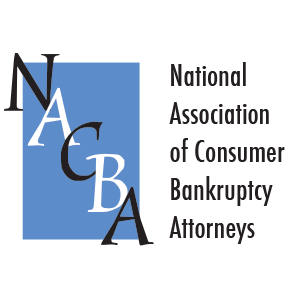New Jersey has been often described as one of the wealthiest and most expensive states in the nation to reside in. With its individual and household incomes above the national median, it’s no surprise that New Jersey residents also have more debt than most of the nation. They rank right at the top for student loan debt, credit card debt and mortgage debt. Things just cost more in wealthier states and sometimes just the essentials are hard to afford. People who make more money tend to incur more debt and a downturn in the economy or an unforeseen financial setback can result in the inability to meet financial obligations regardless of your economic status. Add in the current economic burdens brought on by the coronavirus outbreak and you have a recipe for missing financial obligations as they come due.
But Bankruptcy can help. This page deals specifically with Chapter 7 bankruptcy and what it can — and cannot — do for you.
What is Chapter 7 bankruptcy?
In a Chapter 7 bankruptcy, a trustee gathers and sells the debtor’s nonexempt assets and uses the proceeds of these assets to pay off their creditors in accordance with the provisions of the Bankruptcy Code. In virtually all of our Chapter 7 cases, our clients who file Chapter 7 cases have no nonexempt assets and lose no assets, they lose only their debts. In essence, a Chapter 7 bankruptcy case can allow you to wipe out most or all of your debts to allow you to get a ‘Fresh Start’.
Keep in mind that certain debts cannot be discharged in a Chapter 7 bankruptcy, such as alimony, child support, certain taxes, and most student loans. (These are known as Non-Dischargeable Debts. See our exhaustive list here) In many Chapter 7 cases, the debtor has large credit card debt or personal loan debt or other unsecured debts (meaning no collateral) with few significant assets. In the vast majority of cases Chapter 7 bankruptcy is able to completely eliminate all of these debts.
Can I keep my house if I file Chapter 7 in New Jersey?
Yes, it is possible to keep your house; however because the available bankruptcy homestead exemption is a fixed amount and subject to other rules, our experienced bankruptcy attorneys would have to review your specific situation and consult with you as to whether your home would be safe in a chapter 7 bankruptcy case or if a chapter 13 case would be your better choice.
Can I keep my car if I file Chapter 7 in New Jersey?
If you have a financed car and are filing a Chapter 7 bankruptcy, you have three ways in which you can deal with your car loan.
- If you want to be done with the car and your obligations on the car, you can “surrender” the car. You will return the car to the finance company and your obligation to pay for the car will be discharged upon the successful completion of your bankruptcy case.
- If you want to keep the car and continue to make payments on it under the current financing arrangement, you can submit a reaffirmation agreement. You are telling the finance company that you will keep the car and continue to make payments on the car pursuant to your original contract terms.
- You can “redeem” the car. (See our article with this option as its subject.)
How much does it cost to file bankruptcy in New Jersey?
The cost to file a bankruptcy case is dependent upon the facts of your particular situation, such as the chapter of bankruptcy filing and the complexity of the case. Our firm offers a free consultation to make preliminary determinations as to the chapter of bankruptcy would work best for you and the anticipated costs involved.
What qualifies a person for a Chapter 7 bankruptcy?
In order to qualify for a Chapter 7 bankruptcy in New Jersey, you will first need to gather your financial documents, such as:
- Six months of paystubs. If living with your spouse in the same household, you will also need their paystubs as well as evidence of any other household income, pensions for example. Your last two filed tax returns will be required, three months of bank statements, your mortgage statement and a few other documents as well. We can give you a comprehensive list of documents that you will need. We can help you get these documents if you need help.
- The ‘Means Test’ takes your household income and averages it over the last six months, subtracts allowed expenses and mechanically determines your eligibility for filing a Chapter 7 bankruptcy case. Even if you don’t “pass” the Means Test there are exceptions that may let you qualify, our experienced bankruptcy attorneys can look at these exceptions for you if necessary.
It is important to understand that this is just the one step to qualify for a Chapter 7 bankruptcy. Things can get a bit trickier. For example, if you have a significant amount of money left over after paying your monthly household expenses, or you have significant assets, you may need to file a Chapter 13 bankruptcy case. This is why our firm offers a free consultation to prospective clients. At that time we can make preliminary determinations as to the bankruptcy chapter which would work best for you.







